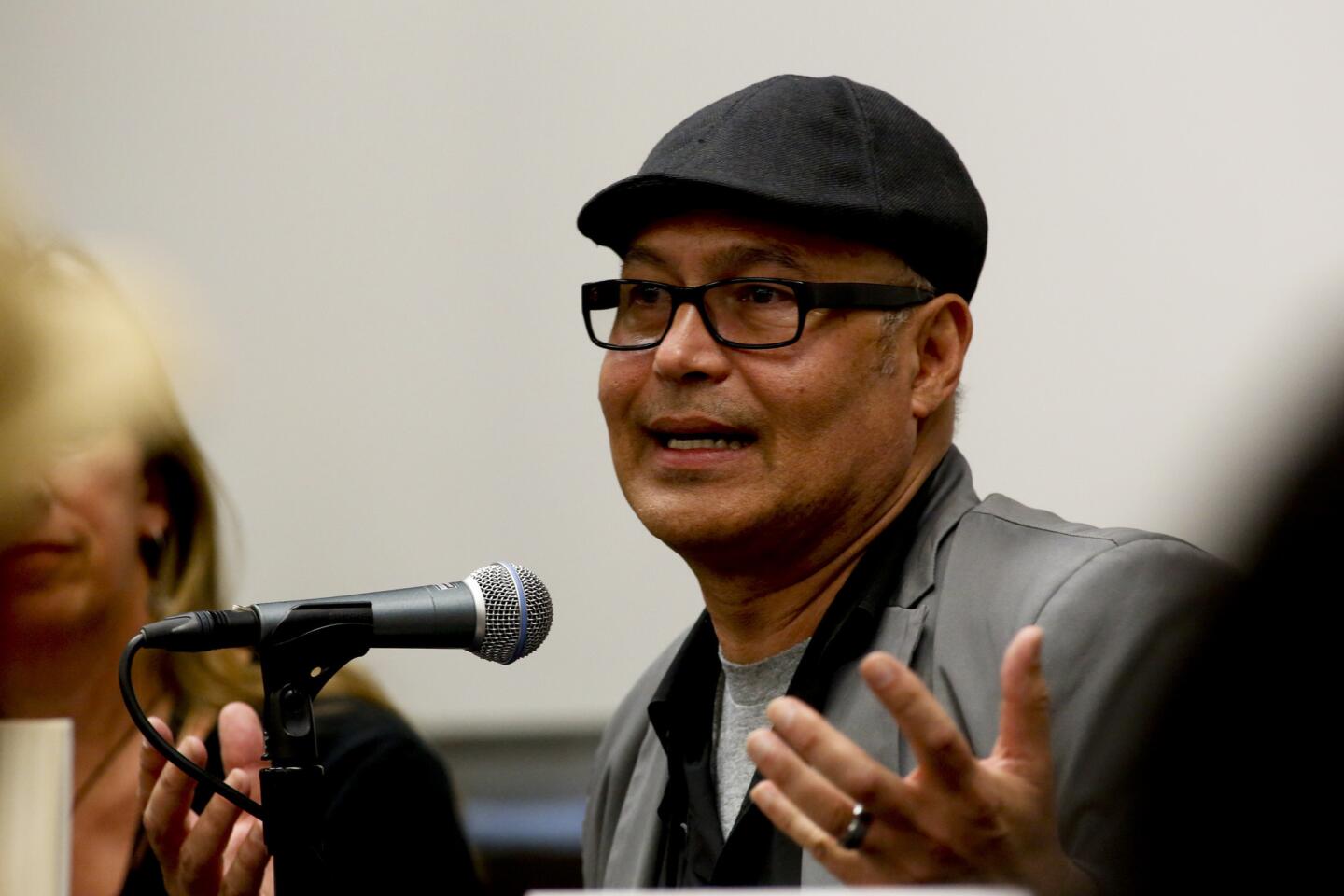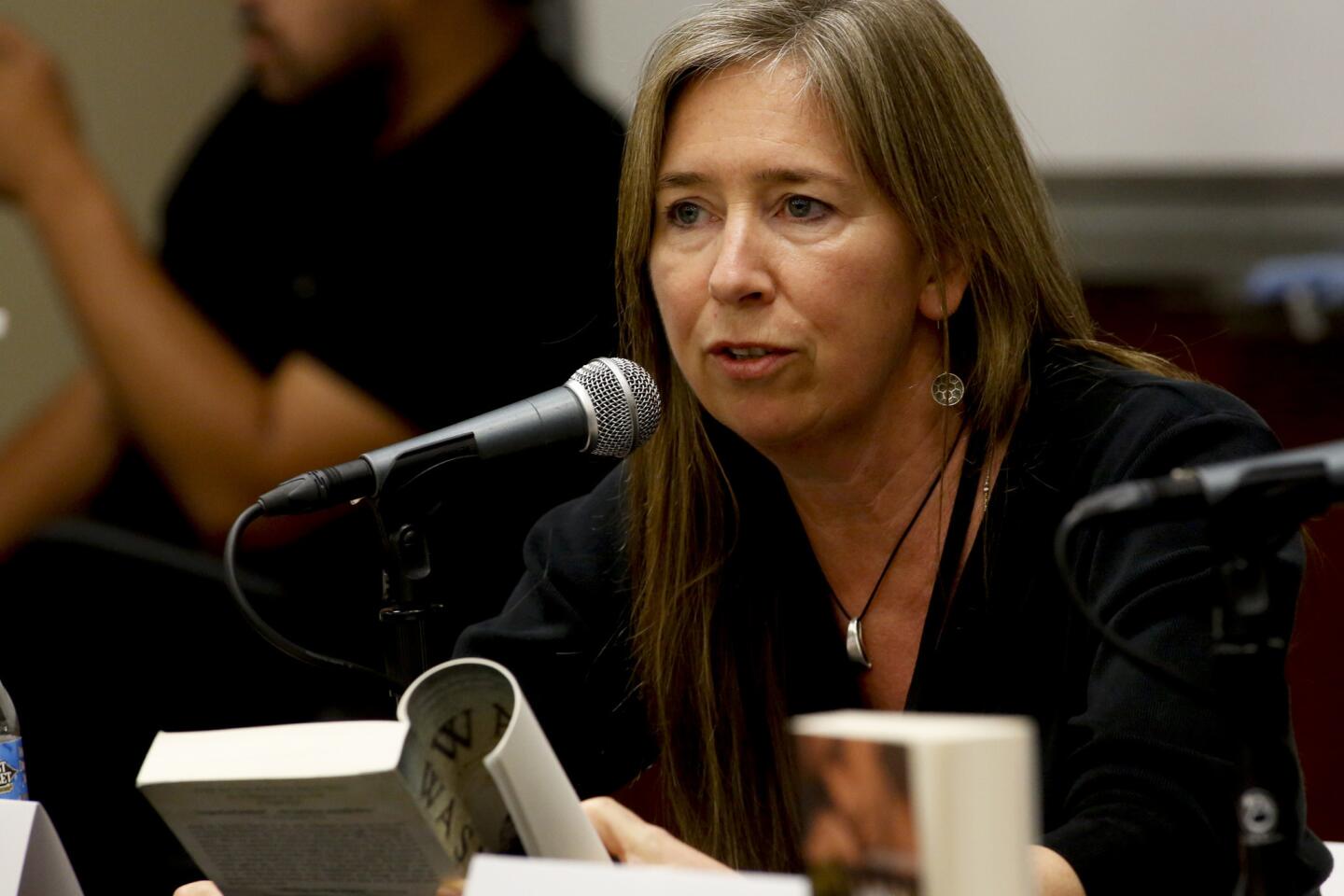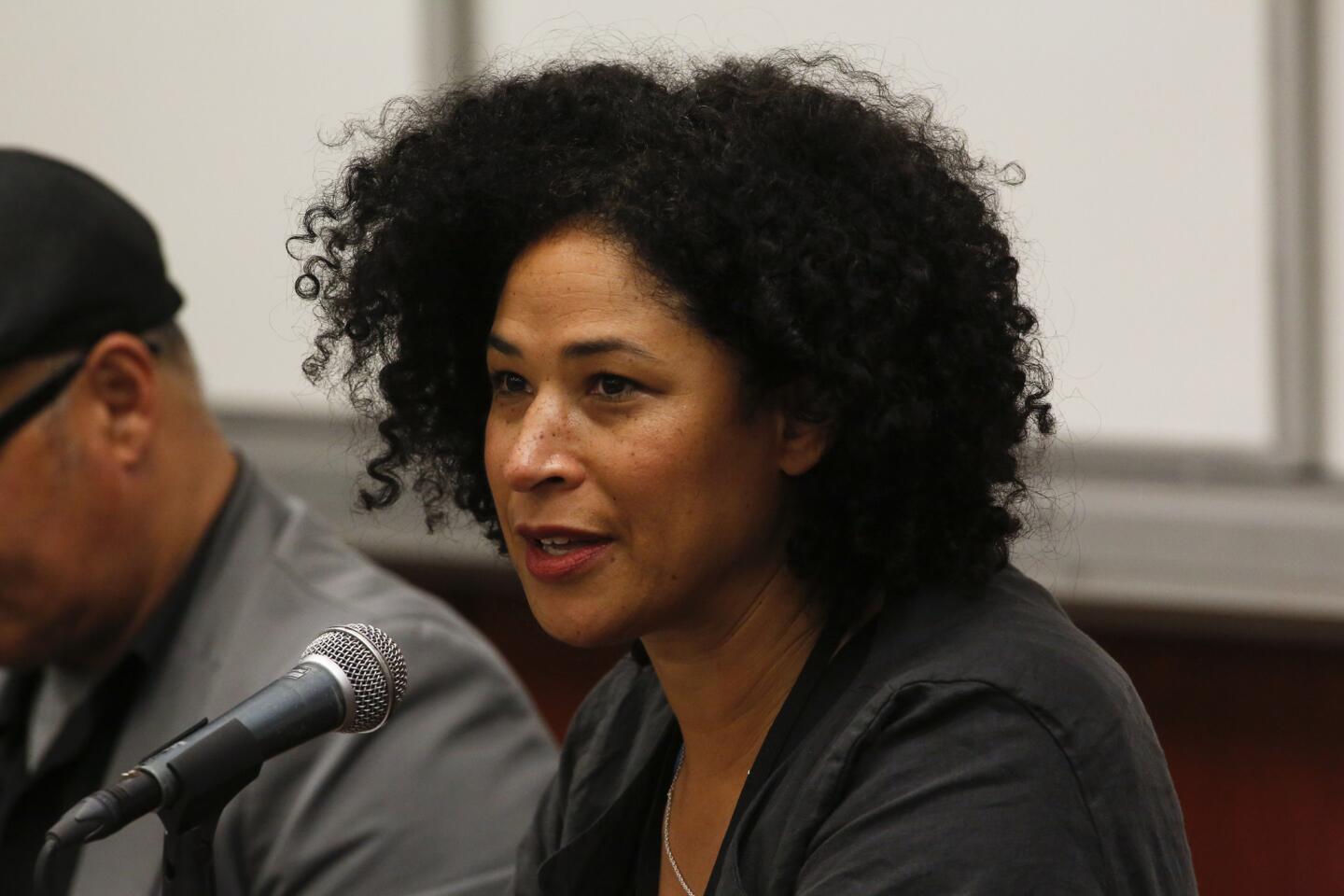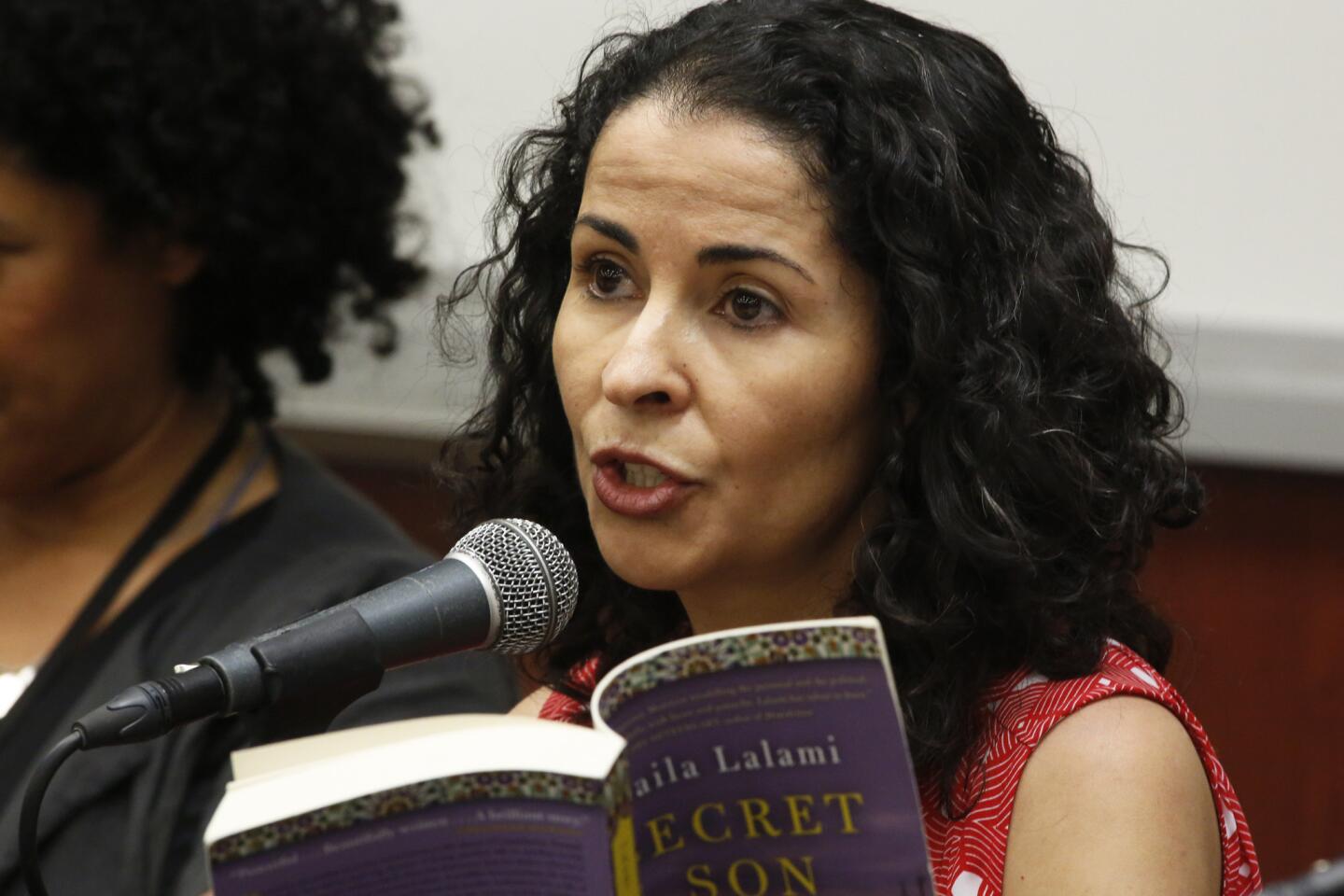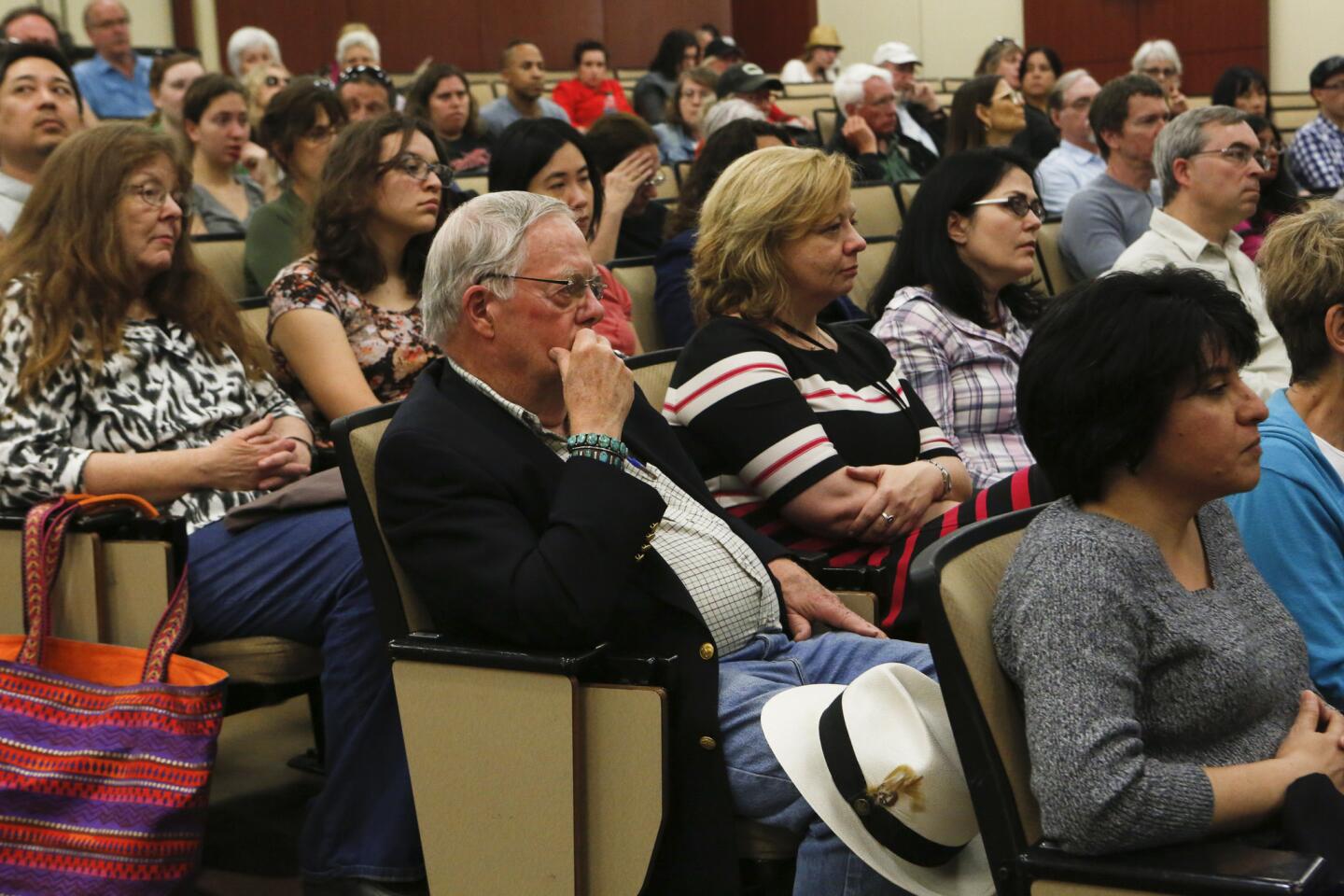Writers who create fictional worlds where ethnic characters thrive
- Share via
Fiction writers discussed what it means to write novels about characters and cultures with specific ethnic identities, while also debating who is able to tell those stories, in a panel called “Fiction: Writing Culture and Character” at the Festival of Books on Sunday.
Rebecca Walker has written several memoirs, including “Black, White and Jewish,” but wrote her first novel last year, about an American who goes to to Africa. Walker said she paid attention to, and made sure not to fall into, the tropes of the noble savage and the privileged American in telling a story that was both “true and subversive.”
The struggle with writing about people who aren’t American, said Cuban author Eduardo Santiago, is making them seem distinct. “I have to work really hard to make them unique and different, because people are not really that different,” he said. “What makes them unique are the circumstances we drop them into.”
FULL COVERAGE: Festival of Books
The panelists agreed that to write a novel about a foreign country or people involves creating a very specific world that the characters exist in. But that’s also the case for every work of fiction, said Moroccan writer Laila Lalaimi.
Even the work of John Updike, considered quintessentially American, requires the same kind of specificity and world-building that a novel about Morocco does, she said. “I do feel that it does require a certain leap to be in an Updike novel,” she said.
The world created by an author will be influenced by the one around them, but they are still creating a wholly fictional world, and therefore should be able to write about any place on the planet, she said.
INTERACTIVE GAME: How to be a writer
Margaret Wrinkle, whose novel “Wash” is about American slavery, wondered why these questions are never put to novels written about and by Caucasians. “What is the white novel? That’s a huge part of this,” she said. “This conversation always gets put in the Morocco novel or the Cuba novel but it needs to be turned around.”
More to Read
Sign up for our Book Club newsletter
Get the latest news, events and more from the Los Angeles Times Book Club, and help us get L.A. reading and talking.
You may occasionally receive promotional content from the Los Angeles Times.
